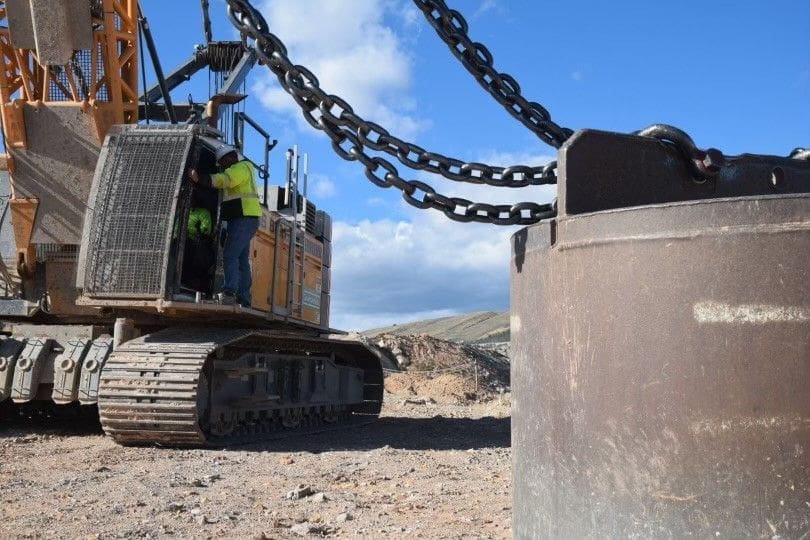
Post-Improvement Testing : Why It’s Crucial For Your Construction Project
Ground improvement techniques are pivotal when it comes to construction and civil engineering. They ensure the stability and longevity of construction projects. Yet, the implementation of these techniques is only half the story. The other half lies in post-improvement testing. This process is crucial in assessing the effectiveness of the ground improvement methods applied.
Importance of Post-Improvement Testing
Through construction project testing, potential issues can be identified and addressed promptly. This proactive approach helps prevent costly and potentially dangerous failures down the line. Moreover, it provides valuable data for project analysis and evaluation. This information is essential in guiding decision-making and ensuring the project’s success.
The Imperative of Post-Improvement Testing in Construction
Post-improvement testing is a non-negotiable aspect of construction projects. It is the process of evaluating the ground after the application of improvement techniques.
This testing phase is not merely a formality. It is a critical step that ensures the ground can support the intended structure.
Moreover, it verifies that the improvement techniques have been effective. This is crucial in mitigating risks associated with ground instability.
Post-improvement testing also provides valuable data. This information aids in project analysis and decision-making.
In essence, it is a vital tool in ensuring the success and sustainability of construction projects.
Understanding Post-Improvement Testing
Post-improvement testing involves a variety of tests. These include load tests, compaction tests, and permeability tests, among others.
These tests assess the condition of the improved ground. They provide insights into its stability, strength, and other key properties.
The results of these tests inform the next steps in the construction process. They guide the project team in making informed decisions.
The Role of Testing in Project Integrity and Longevity
Testing plays a significant role in ensuring project integrity. It helps identify potential issues before they escalate into major problems.
Moreover, it contributes to the longevity of the construction project. By ensuring the ground is stable and suitable, it reduces the risk of future structural issues.
In short, post-improvement testing is a critical factor in the success and durability of construction projects.
Key Ground Improvement Techniques and Their Evaluation
Ground improvement techniques are diverse. They are chosen based on the specific needs and challenges of each project.
These techniques aim to enhance the properties of the ground. They increase its strength, reduce its compressibility, and improve its permeability.
The evaluation of these techniques is crucial. It ensures that they have effectively improved the ground conditions.
In essence, the evaluation process is a critical step in ensuring the success of ground improvement strategies.
Types of Tests for Ground Improvement
There are several types of tests used in ground improvement. These tests are designed to assess different aspects of the ground’s condition.
Some common tests include:
- Load tests, which measure the ground’s ability to support loads.
- Compaction tests, which assess the ground’s density and firmness.
- Permeability tests, which evaluate the ground’s ability to allow water to pass through.
These tests provide valuable data. They inform the project team about the effectiveness of the ground improvement techniques used.
Geotechnical Surveys and Soil Properties
Geotechnical surveys play a key role in ground improvement. They provide detailed information about the ground’s properties.
These properties, such as soil type and density, influence the choice of improvement techniques. They also affect the effectiveness of these techniques.
In short, understanding the ground’s properties is crucial. It guides the selection and evaluation of ground improvement techniques.
Sustainable Practices in Ground Improvement
Sustainability is a key consideration in ground improvement. It involves integrating practices that minimize environmental impact.
These practices also aim to enhance the longevity of the construction project. They ensure that the project remains viable and safe over time.
In essence, sustainable ground improvement is about balancing project needs with environmental responsibility.
Mitigating Environmental Impacts
Ground improvement can have environmental impacts. These include changes to the landscape and potential harm to local ecosystems.
Mitigating these impacts is crucial. It involves careful planning and the use of environmentally friendly techniques.
In short, responsible ground improvement seeks to enhance the ground’s properties while minimizing harm to the environment.
The Role of Sustainability Consultants
Sustainability consultants play a vital role in construction projects. They provide guidance on sustainable practices, including ground improvement.
These consultants help project teams understand the environmental implications of their decisions. They also advise on strategies to mitigate potential impacts.
In essence, sustainability consultants are key partners in achieving responsible and sustainable ground improvement.
The Financial and Legal Implications of Inadequate Testing
Inadequate testing can have serious financial implications. It can lead to structural failures that require costly repairs.
Moreover, if a project fails to meet regulatory standards due to poor ground improvement, it may face legal penalties. These can further escalate project costs.
In essence, investing in comprehensive testing is not just about ensuring project success. It’s also about avoiding financial and legal pitfalls.
Advancements and Innovations in Construction Project Testing
The field of construction project testing has seen significant advancements. Technology has improved the accuracy and efficiency of testing.
Non-destructive testing methods, for instance, assess the condition of improved ground without causing damage. This innovation has revolutionized the testing process.
Moreover, the integration of testing data into project management software has enhanced tracking and decision-making. This has made it easier to monitor and evaluate ground improvement techniques.
The Future of Testing: Predictive Modeling and AI
Looking ahead, predictive modeling and simulations hold great promise. They can evaluate potential outcomes of ground improvement techniques before implementation.
Artificial intelligence (AI) and machine learning also have potential. They can enhance the predictive capabilities of project analysis, making it more accurate and efficient.
In essence, the future of construction project testing lies in harnessing these technological advancements. They can make testing more precise, efficient, and predictive, ultimately enhancing project success and sustainability.
Emphasizing the Importance of Post-Improvement Testing
In conclusion, post-improvement testing is a critical aspect of construction projects. It ensures the integrity, longevity, and sustainability of the structures we build. As technology advances, so too must our testing methods. Embracing these advancements will lead to more successful and sustainable construction projects.
At Densification, we offer state-of-the-art testing services to ensure your project meets the highest standards of safety and performance. Contact us today to learn how we can help you achieve excellence in your construction endeavors.











